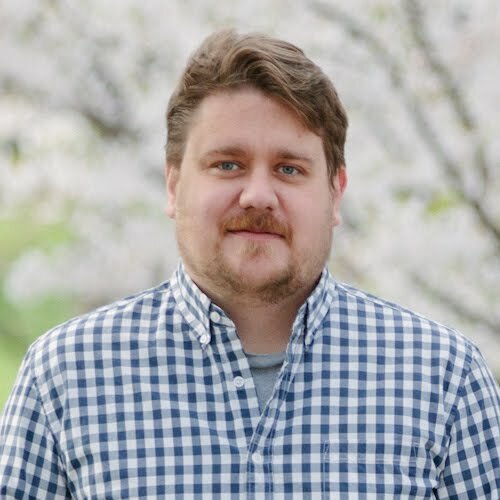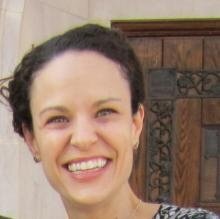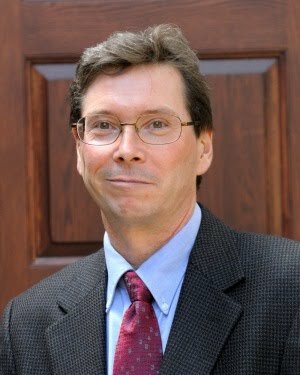
Piotr Adamczyk
Program Manager
Google Cultural Institute
AbstractIn 2011, Google launched the Google Art Project, an ever-growing repository of artworks from Museums around the globe, quickly followed by the expanded Google Cultural Institute. Efforts like these with the cultural sector use a combination of Google technologies and expert information provided by partner institutions to create unique online experiences. Spurred on by our partners, we've been adding features to our platform - content hosting, embeddable image viewers, exhibit creation tools - and making Google technology work for Museums - high-resolution imaging, mobile publishing, and experiments in VR. Building these projects requires a deep understanding of library, archival, and museum practices and standards as well as providing tools that can be used by a wide array of partners at different stages of cataloging and digitization. So, how are we doing? We'll discuss reactions to the work so far, present some of our latest attempts to do more with cultural heritage online, and talk about how Google would like to further engage with cultural partners.
Bio
Starting with an analyst position at The Metropolitan Museum of Art, as the Data Lead for the Google Art Project, and now on the Content Team of the Google Cultural Institute, Piotr Adamczyk’s work is focused on the use of open/linked data in cultural heritage institutions. With undergraduate degrees in Mathematics and Computer Science, Piotr holds graduate degrees in Human Factors and Library and Information Science from the University of Illinois at Urbana-Champaign. Piotr has authored papers, organized workshops, and served as a Program Committee member for Association for Computing Machinery and cultural heritage conferences, and his arts research includes residencies at the Banff New Media Institute, Medialab-Prado, and Eyebeam.

Dr. Katherine Skinner
Executive Director
Educopia Institute
Abstract
The digital library has been on a seemingly insatiable quest for “innovation” for decades. This focus permeates our field, usually in the guise of transforming digital library practices. The themes change over time (e.g., Federating library collections! Digital humanities! Digital preservation! Big data!), but dependably, digital library research projects on “innovation” topics are seeded in abundance each year. Researchers are rewarded (and funded) for their big, experimental ideas, not for successful applications of innovations in practice. Gearing resources toward “innovation” prizes the unique or novel approach above the cultivation of our field. Few innovations ever flower and thrive beyond their initial moments in the sun.What might happen if digital libraries stop focusing on the innovative solution as an end in itself, and start thinking about the process of using innovations within networks to actively facilitate system-wide change?
Drawing from the disciplines of sociology and economics, Skinner will explore both established and emergent models for system-wide transformation, ultimately asking what digital libraries could accomplish as a field if we shifted our focus from “innovation” to “impact.”
Bio
Skinner received her Ph.D. from Emory University. She has co-edited three books and has authored and co-authored numerous reports and articles. She is currently Principal Investigator for research projects on continuing education (Nexus, Mapping the Landscapes), digital preservation (ETD plus, Chronicles in Preservation), and scholarly communication (Chrysalis). She regularly teaches graduate courses and workshops in digital librarianship and preservation topics and provides consultation services to groups that are planning or implementing digital scholarship and digital preservation programs.

Dr. J. Stephen Downie
Professor and Associate Dean for Research
Graduate School of Library and Information Science
The University of Illinois at Urbana-Champaign
Abstract
This lecture provides an update on the recent developments and activities of the HathiTrust Research Center (HTRC). The HTRC is the research arm of the HathiTrust, an online repository dedicated to the provision of access to a comprehensive body of published works for scholarship and education. The HathiTrust is a partnership of over 100 major research institutions and libraries working to ensure that the cultural record is preserved and accessible long into the future. Membership is open to institutions worldwide.
Over 13.1 million volumes (4.7 billion pages) have been ingested into the HathiTrust digital archive from sources including Google Books, member university libraries, the Internet Archive, and numerous private collections. The HTRC is dedicated to facilitating scholarship by enabling analytic access to the corpus, developing research tools, fostering research projects and communities, and providing additional resources such as enhanced metadata and indices that will assist scholars to more easily exploit the HathiTrust materials.
This talk will outline the mission, goals and structure of the HTRC. It will also provide an overview of recent work being conducted on a range of projects, partnerships and initiatives. Projects include Workset Creation for Scholarly Analysis project (WCSA, funded by the Andrew W. Mellon Foundation) and the HathiTrust + Bookworm project (HT+BW, funded by the National Endowment for the Humanities). HTRC's involvement with the NOVEL(TM) text mining project and the Single Interface for Music Score Searching and Analysis (SIMSSA) project, both funded by the SSHRC Partnership Grant programme, will be introduced. The HTRC's new feature extraction and Data Capsule initiatives, part of its ongoing work its ongoing efforts to enable the non-consumptive analyses of the approximately 8 million volumes under copyright restrictions will also be discussed. The talk will conclude with some suggestions on how the non-consumptive research model might be improved upon and possibly extended beyond the HathiTrust context.
Bio
J. Stephen Downie is the Associate Dean for Research and a Professor at the Graduate School of Library and Information Science at the University of Illinois at Urbana-Champaign. Dr. Downie is the Illinois Co-Director of the HathiTrust Research Center. He is also Director of the International Music Information Retrieval Systems Evaluation Laboratory (IMIRSEL) and founder and ongoing director of the Music Information Retrieval Evaluation eXchange (MIREX). He was the Principal Investigator on the Networked Environment for Music Analysis (NEMA) project, funded by the Andrew W. Mellon Foundation. He was Co-PI on the Structural Analysis of Large Amounts of Music Information (SALAMI) project, jointly funded by the National Science Foundation (NSF), the Canadian Social Science and Humanities Research Council (SSHRC), and the UK’s Joint Information Systems Committee (JISC). He represents the HTRC on the NOVEL(TM) text mining project and the Single Interface for Music Score Searching and Analysis (SIMSSA) project, both funded by the SSHRC Partnership Grant programme. All of these aforementioned projects share a common thread of striving to provide large-scale analytic access to copyright-restricted cultural data. Stephen has been very active in the establishment of the Music Information Retrieval (MIR) community through his ongoing work with the International Society for Music Information Retrieval (ISMIR) conferences. He was ISMIR's founding President and now serves on the ISMIR board. Along with Robert MacDonald of Indiana University he co-chaired the 2013 Joint Conference on Digital Libraries (JCDL). Dr. Downie currently serves on the JCDL steering committee. Professor Downie holds a BA (Music Theory and Composition) along with a Master's and a PhD in Library and Information Science, all earned at the University of Western Ontario, London, Canada.
|
|




